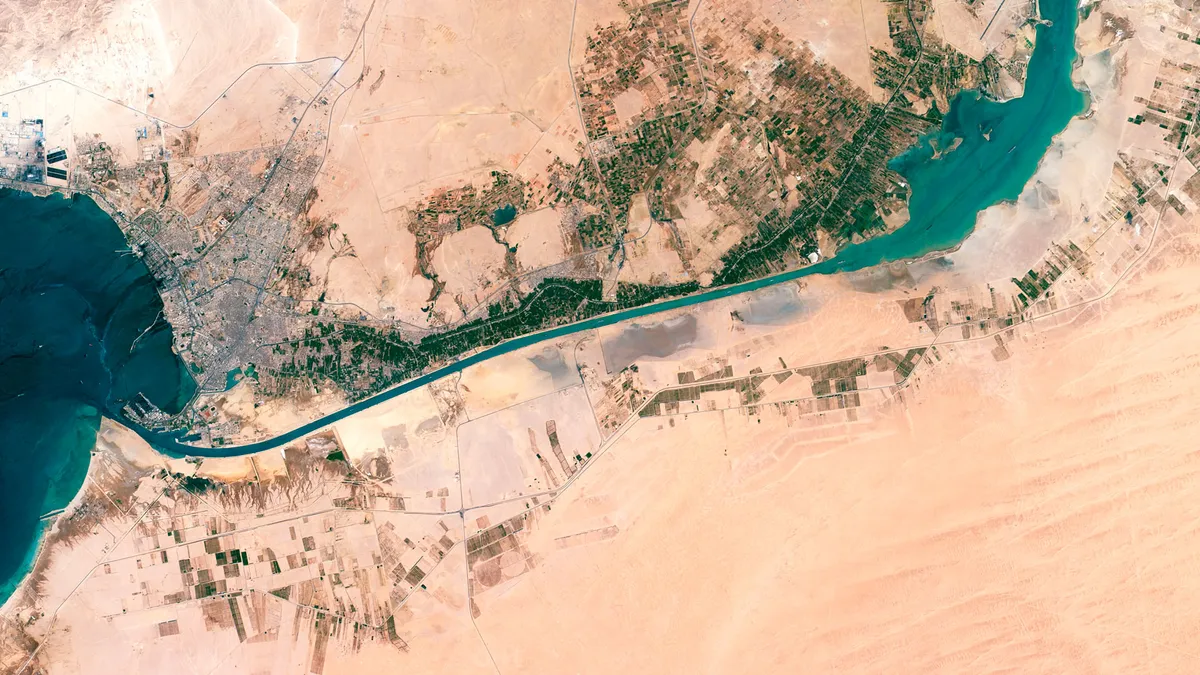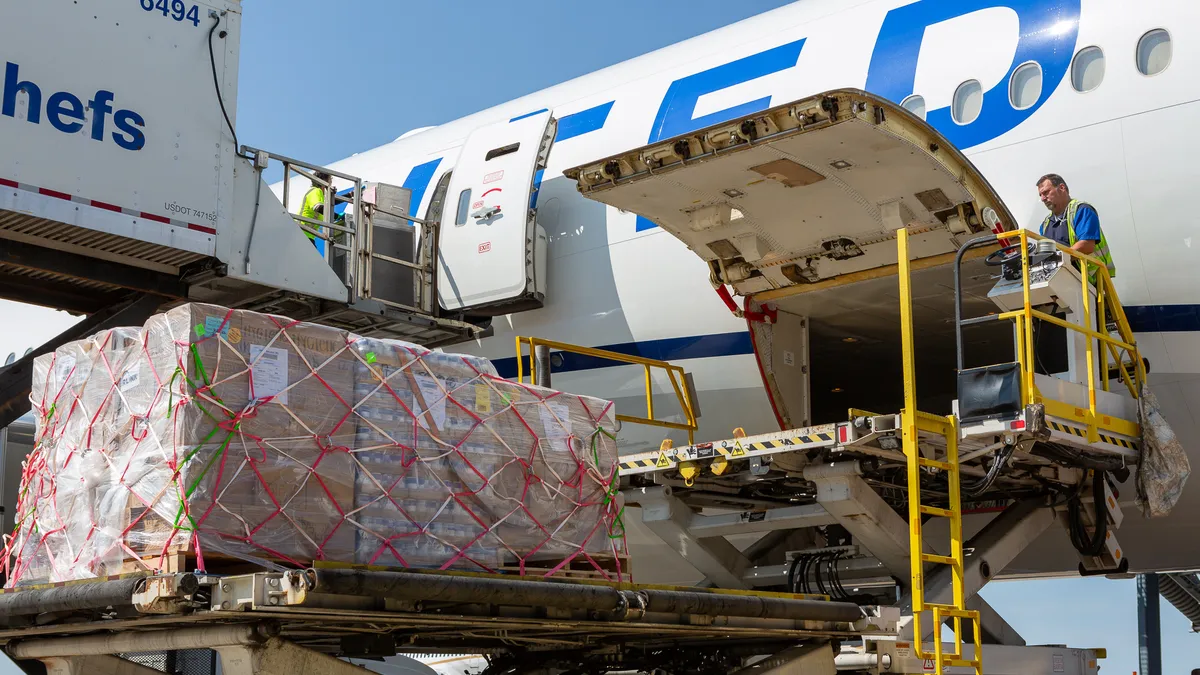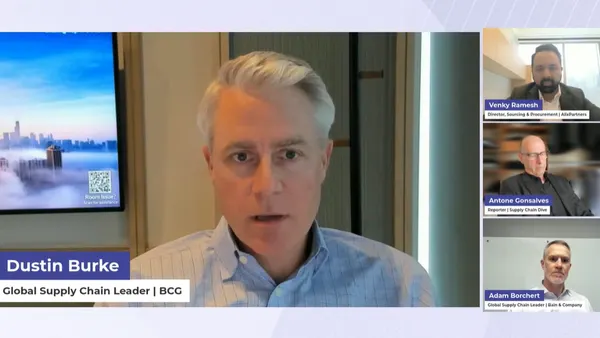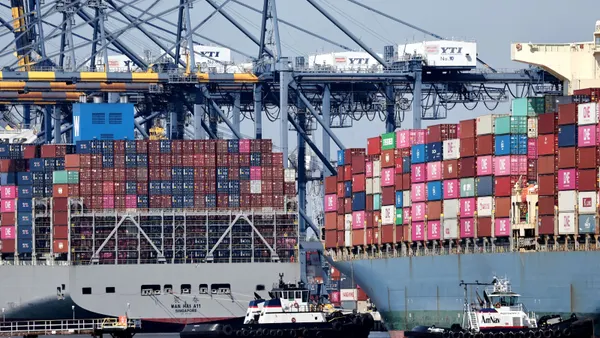Dive Brief:
- Ships that had been waiting in the Great Bitter Lake to transit the Suez Canal, while the Ever Given was lodged in the waterway, were able to move starting Monday, according to updates from ocean carriers released Tuesday.
- CMA CGM said the average transit capacity is about 80 ships in and out of the canal per day. Maersk expects it to take a week to clear the backlog.
- "Exact ETA of our affected vessels is still under evaluation," Hapag Lloyd said in a Tuesday announcement. "We are doing our utmost to optimize the rotations in order to minimize potential bottlenecks at ports and terminals."
Dive Insight:
Some European ports have yet to see any difference in their ship call, because the ships stuck in the Suez weren't scheduled to show up until later this week — or even early next week, in the case of The Port of Antwerp.
"Once the ships sail towards Western European ports, there will probably be a peak of traffic in all those ports," Antwerp Port Authority Corporate Communication Advisor Annelies Oeyen said in an email. "There will be an impact on our port, but it is still too early to judge how small or large this impact will be."
The time between when ships were scheduled to arrive and when they actually do will provide ports a lull in their operations, according to BIMCO Shipping Analyst Emily Hannah Stausbøll.
"Then as the backlog in the canal is cleared and the ships start arriving at their destinations, congestion will become a problem, especially in the European ports," Stausbøll said in an email.

How bad port congestion gets will depend on a variety of factors, including how quickly ships get out of the canal, according to ManWo Ng, associate professor of maritime and supply chain management at Old Dominion University and co-editor-in-chief of the peer-reviewed journal Maritime Transport Research.
"Another key question is: What will ships do after passing through the Suez Canal?" Ng said in an email Monday. "Will they speed up to compensate for some of the lost time? Will they skip certain ports? Communication and coordination between ports and the ocean carriers is also critical."
Oeyen said some carriers could still change their port calls, and terminals at Antwerp were taking steps to prepare.
"For example, PSA Antwerp has set up a 7-day timeframe within which containers for Mid & Far-East ships are accepted at the terminals," Oeyen said. "The terminal operator takes this measure to anticipate the expected congestion at the terminals and to prevent further delays in the sailing schedules."
What happens over the next several days will provide a clearer picture around blank sailings that could result from the Suez blockage. If ships don't make it to their next destination in time, there aren't enough vessels in the charter market to fill in the shortfall, so sailings could get blanked, Stausbøll said.
"We saw a few cases of this when the congestion on the [U.S. West Coast] was at its worst and ships were unable to make it back to the Far East in time," she said.
The bottleneck in the global supply chain took place at a time when global schedule reliability is already near record lows. Carriers recorded a global schedule reliability of just under 35% in February, which was essentially flat MoM.
"The average delay for LATE vessel arrivals has been on an increasing trend for six months, increasing M/M in February 2021 to 6.76 days, which is the highest recorded delay ever," Sea-Intelligence CEO Alan Murphy said in a statement.













